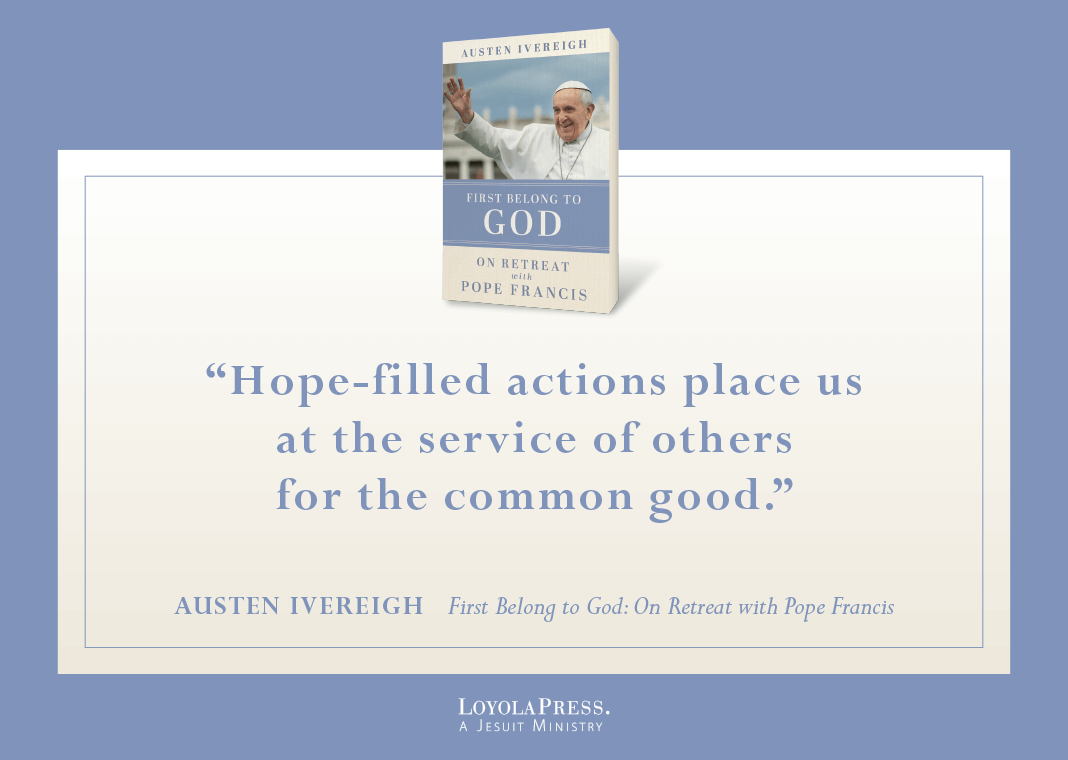There’s a scene within the film The Shawshank Redemption through which the 2 primary characters, each prisoners within the Nineteen Fifties, debate about hope. One says that hope is the one factor nobody can take away, so we don’t overlook the goodness of life. The opposite says “hope is a harmful factor” that may eat a person alive. So, which is it? Maybe that is determined by what it feels prefer to expertise the grace of hope and who advantages from the ensuing motion.
The expertise of hope is a motion within the coronary heart, not a thought within the head. Its basis shouldn’t be on odds or luck, as when one buys a lottery ticket, however on our capability to collaborate with God in love. Hope shouldn’t be one thing we generate, however, like all graces, a present given to us. And, most significantly, Christian hope is “expressed in concrete actions,” as Austen Ivereigh writes. He explains in First Belong to God: On Retreat with Pope Francis that, “Hope-filled actions place us on the service of others for the widespread good.” Hope with out motion is only a head recreation.
Over the previous two years, by my most cancers and bone-marrow transplant, I’ve been dancing with and round hope. Once I dance round it, I’m afraid to embrace it, like a temptation. I worry I can be setting myself up for failure but once more. In these instances, I really feel alone and expertise despair. Once we are in our darkish locations in life, hope can really feel harmful.
However when I’ve requested for and embraced the grace of hope, although I should still be in a darkish place, I do know I’m not alone. My ideas are on the world past me, no matter residing or dying. If I’m able to stay, I’m looking forward to the instances I get to spend and actions I get to do for and with others. Some days, essentially the most hope-filled motion I can take is to rise up within the morning, to not do one thing for myself, however for an additional. If my physique reaches its limits, my hope is rooted within the reward provided within the Resurrection, not only for me, however for all of us.
Being invited by God to serve one other particular person or the widespread good, hoping to pay ahead the love we really feel in our personal distinctive means and circumstance, is the decision of each Christian. Ivereigh goes on to say, “To like the world is patiently to serve it, as Jesus did, and as we’re referred to as to do: as this disciple, in this time and in this place, inside this Church.” Why trouble appearing if there have been no hope of advancing the Kingdom of God? Maybe, then, essentially the most harmful side of hope is having none.


